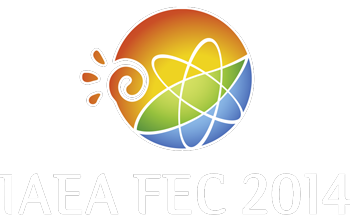Speaker
Mr
Richard Kemp
(UK)
Description
To allow coherent conceptual design activities, and later engineering design activities, for a demonstration fusion power plant (DEMO), a self-consistent design point must first be developed. The DEMO design point is a set of parameters characterising the key features of a DEMO power plant on which evaluation of different systems can be based with confidence that there are no significant conflicts between those systems. System codes representing the full plant by capturing the interactions between (usually relatively simple) models of all the important plant subsystems are used to identify design points based on assumptions about plasma performance and technology. The purpose of using a systems code is to identify potential solution spaces without having to carry out complex analysis at every point.
The EU DEMO strategy currently considers two possible operating scenarios: a conservative pulsed design, using near-ITER technology and plasma performance, termed DEMO1; and an optimistic, higher-performance, steady-state option (DEMO2). This contribution presents the work being carried out to develop these design points, including development of the systems code models. The process involves an iteration between the systems code PROCESS and more detailed analysis such as integrated scenario modelling with transport codes. The results of the detailed modelling are used to refine the assumptions and thus the design space of available solutions, within which the design points can be re-optimised. The target performance parameters for each DEMO option and the current device parameters in each case are also presented, and we discuss the sensitivity study work that has been carried out to assess the robustness of each design and justify the choice of variables. In each case the variables are subject to change as more DEMO-relevant models and experimental data become available and technological knowledge improves. However, these operating points are intended to provide a well-justified and stable foundation on which to base wider design evaluation work.
This work was funded by the RCUK Energy Programme and the European Communities under the contract of Association between EURATOM and CCFE, and by the European Union's Horizon 2020 research and innovation programme. The views and opinions expressed herein do not necessarily reflect those of the European Commission.
| Country or International Organisation | UK |
|---|---|
| Paper Number | FIP/3-3 |
Primary author
Mr
Richard Kemp
(UK)
Co-authors
Dr
David Ward
(CCFE)
Dr
Gianfranco Federici
(EFDA)
Mr
James Morris
(CCFE)
Dr
Ronald Wenninger
(EFDA)

